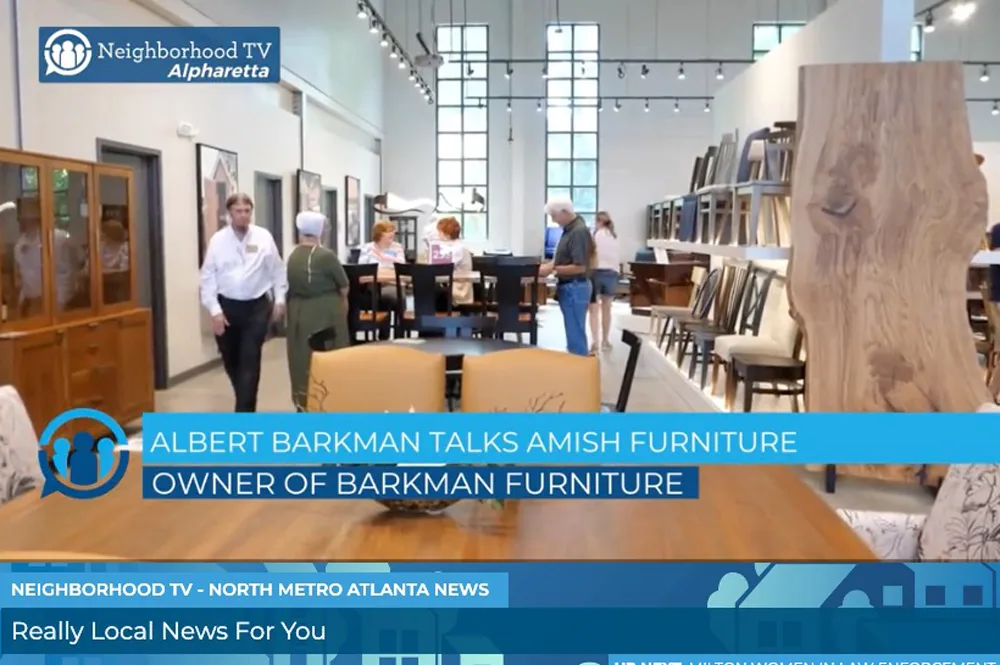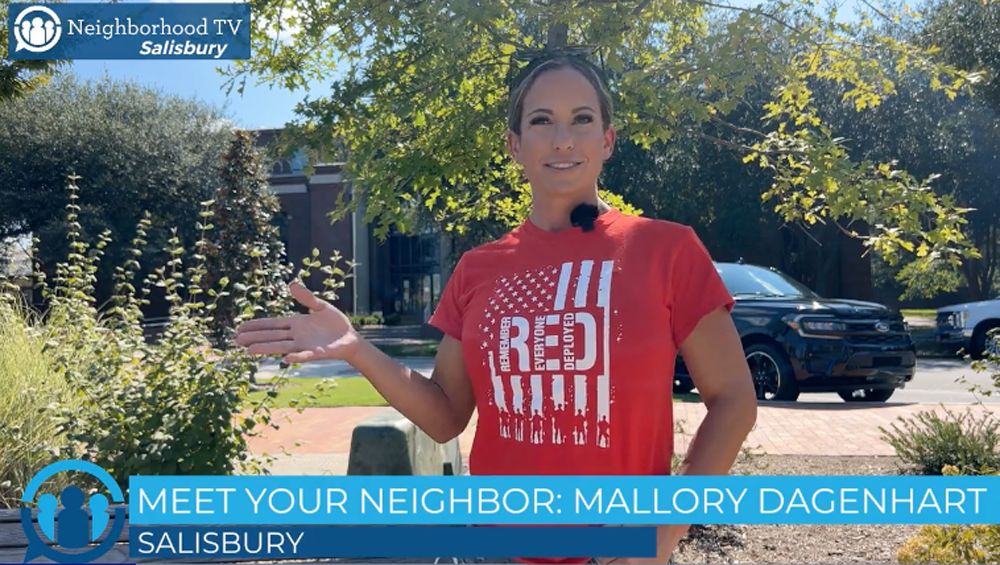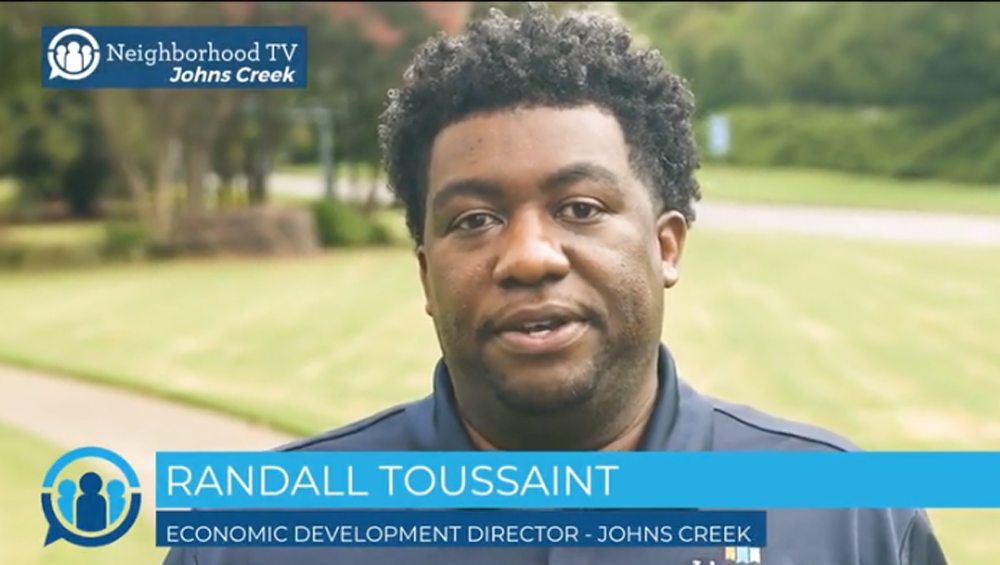
Cox’s NeighborhoodTV Looks To Reboot Hyperlocal

Shortly after Mark Neerman joined Cox Media Group last year, after serving as VP and news director of the 24-hour streaming network CBS News Bay Area, he says his new boss, Executive Chairman Steve Pruett, gifted him “the ultimate puzzle.” Neerman had to piece together a news programming initiative that would be engaging and relevant to viewers in metro area micro-markets, meet audiences where they are — on digital — and was, of course, economically viable.
“You can imagine staring at that puzzle and trying to figure it out,” Neerman says.
In locating some of the puzzle’s borders, he considered the habits of the modern consumer.
 “What are you doing every night before you go to bed? You go to Instagram,” Neerman says. Popular there are reels, short video stories that “flip from one to the other, one to the other,” Neerman says, “without the need for a host, an anchor or reporter guiding you through all those.”
“What are you doing every night before you go to bed? You go to Instagram,” Neerman says. Popular there are reels, short video stories that “flip from one to the other, one to the other,” Neerman says, “without the need for a host, an anchor or reporter guiding you through all those.”
He filled in more central areas of the puzzle by anticipating the use of all the collaboration technology news producers had become well-acquainted with in pandemic-times virtual newsrooms — Slack, Cloud and the like.
“None of us thought we could do it when we went into COVID, and then we figured it out,” Neerman says. So, nobody was going to question the approach this time.

Steve Pruett
Finally, the puzzle picture rounded into form with the choice of broadcast areas for the streaming news service and content production hirings of locals embedded in those communities. Cox would opt for parts of Atlanta as well as Charlotte, N.C., because, Pruett says, they were “interesting” and “had enough going on where we could fill out a content wheel.”
The project leads in Charlotte would team up with the McClatchy publishing company. Staffers at the Observer there would help produce content for the Cox project while out in the field, and the Observer website would also share Cox-generated pieces. In both city outposts, Cox producers would accept videos crafted by videographer contributors to the Stringr remote news gathering network, which Neerman describes as “the Uber of news.” Cox-owned ABC affiliates WSB Atlanta and WSOC Charlotte would provide brief news updates to the new service, and even local community leaders themselves could get in on the content-generation act, producing their own clips for Cox.
With the new channel fully assembled, they named it “NeighborhoodTV.” Launched in August, it is a continuous stream of hour-long content loops updated multiple times a day serving the two sections of Charlotte and Atlanta with what Cox calls in its marketing “really local” stories about current affairs.
 “NTV covers what’s important to the people who live in each market,” says a company press release about NeighborhoodTV. The program features informative segments about “local government, the local impact of extreme weather or other events, new restaurants and nightlife spots, local sporting events, community heroes and local cultural events,” the release also says.
“NTV covers what’s important to the people who live in each market,” says a company press release about NeighborhoodTV. The program features informative segments about “local government, the local impact of extreme weather or other events, new restaurants and nightlife spots, local sporting events, community heroes and local cultural events,” the release also says.
NeighborhoodTV could include a reported piece about dangerous driving around parked school buses, another about local markets celebrating National Peach Month and a third segment produced by and featuring a community economic director discussing a new mixed-use real estate development — as the service did in August on the feed curated for North Atlanta residents. (In addition to that channel and the one in Charlotte, there’s a regional NeighborhoodTV for consumers across the southeast, all available on major streaming platforms, including Samsung and Roku, as well as the NeighborhoodTV dedicated website, which is also home to individual story clips.)

Mark Neerman
“I think the audience [is] hungry for authentic, credible content that respects us as being smart and serves us on platforms where we actually are,” says Neerman, now NeighborhoodTV’s head of content. Since its premiere, per Neerman and the Cox press release, NeighborhoodTV’s audience has appreciated the intentional effort.
People who watch NeighborhoodTV “say they are eager to know more about what’s going on in their immediate neighborhood through an authentic, realistic lens,” according to the release. (Market research conducted by Cox prior to NeighborhoodTV’s founding told the station group just as much and helped inspire the initiative.)
Seventy-two percent of people polled who watch NeighborhoodTV say they have “a positive first impression, driven by content, e.g., things you need to know in your community,” the release goes on. Current awareness of the service is 18%, the company adds, and, in reading an overwhelming number of comments online, Neerman says the positive response from consumers has even surprised him. “I’m almost like, ‘These people can’t all be relatives,’” Neerman jokes. “I don’t have that many!”
“In some ways it’s very modern and advanced,” says Pruett of NeighborhoodTV. “In another way, it’s almost old school. When television started out, we put people on television; there was no canned programming, there was no syndicated programming, you had to make it all. This is a modern-day version [with] local content, news and information.”
NeighborhoodTV is free and ad supported. Pruett says the service is designed to attract small and medium-size local businesses that can advertise on the channels at budget-friendly rates.
With that, the relatively low startup and production costs associated with NeighborhoodTV, as well as its focus on partnerships with already-established area publishers, Cox sees NeighborhoodTV as highly scalable. The company already plans to launch a NeighborhoodTV channel later this year in Orlando, Fla., and Cox’s most optimistic forecasts project NeighborhoodTV channels streaming in 5,000 different neighborhoods across the country, helping to fill in news deserts with information-rich content.
“It’s really exciting what it can be,” Neerman says. “We’ve seen from other platforms, like Nextdoor and other platforms like that out there, that there’s a real need and one for this kind of content. What’s been missing is the aggregation, the synthesis, the journalism.”
 In some ways, NeighborhoodTV may be addressing needs that traditional TV newscasts haven’t been able to, historically.
In some ways, NeighborhoodTV may be addressing needs that traditional TV newscasts haven’t been able to, historically.
“There’s a limit to what a broadcast station can really cover for the audience,” Pruett says. “They just can’t devote the time. It’s an amazing amount of things that are going on out there, so streaming allows us to do that, and allows us to build an identity and allows us to be accessible to people.
“NeighborhoodTV is an important brand extension that connects the Cox Media Group stations’ traditional news deeper into the communities that make up the entire market,” Pruett adds. “It is also a way to bring viewers into the fold who may not normally watch local broadcast news.”
Puzzle solved.
Editor’s Note: This is the latest of TVNewsCheck’s “Newsroom Innovators” profiles, a series showcasing people and news organizations evolving the shape and substance of video reporting. These profiles examine the inception of their innovations, the tools they employ and how they’re reconciling experimental approaches to news storytelling within daily workflows. You can find the others here.
































Comments (1)
Eric says:
October 17, 2023 at 7:53 pm
Channel 4 San Diego should be brought back to life for the Southern California Vision of Cox Communications. By employing and creating a station that serves the local community that it once served would be tremendous in advertising ability as well as a presence in the local community of schools and college campuses. What an advantageous and creative event can happen and by allowing the channel to advertise locally, as well as nationally. This would b most wanted and needed in our community.